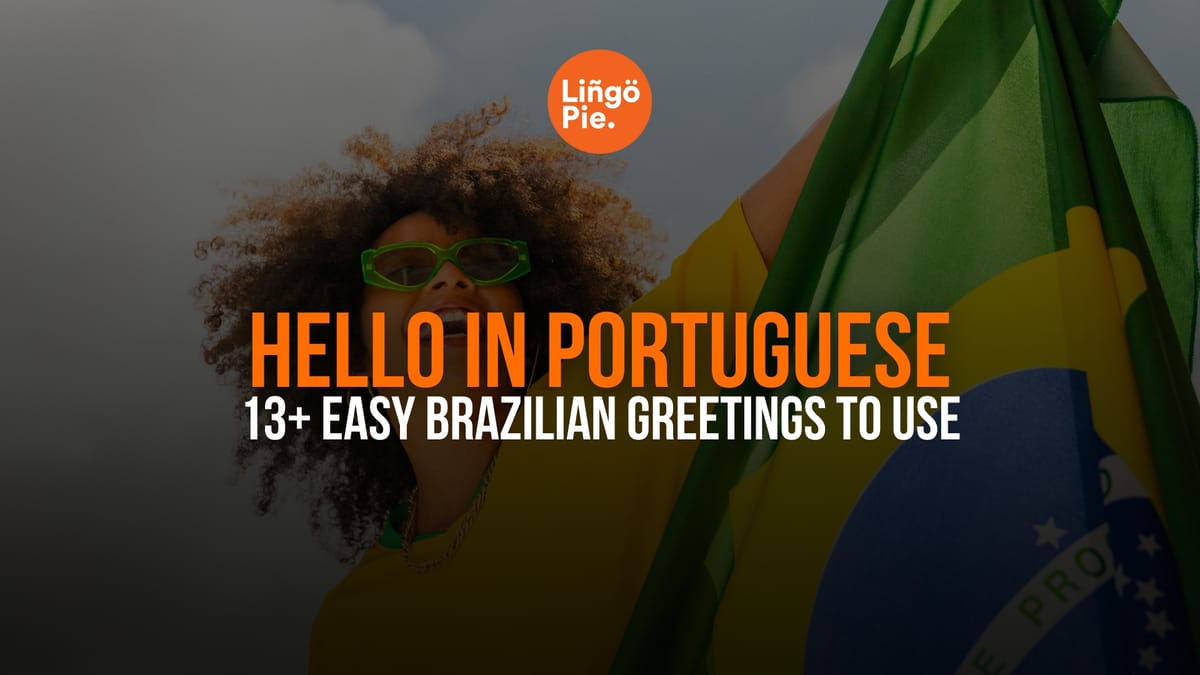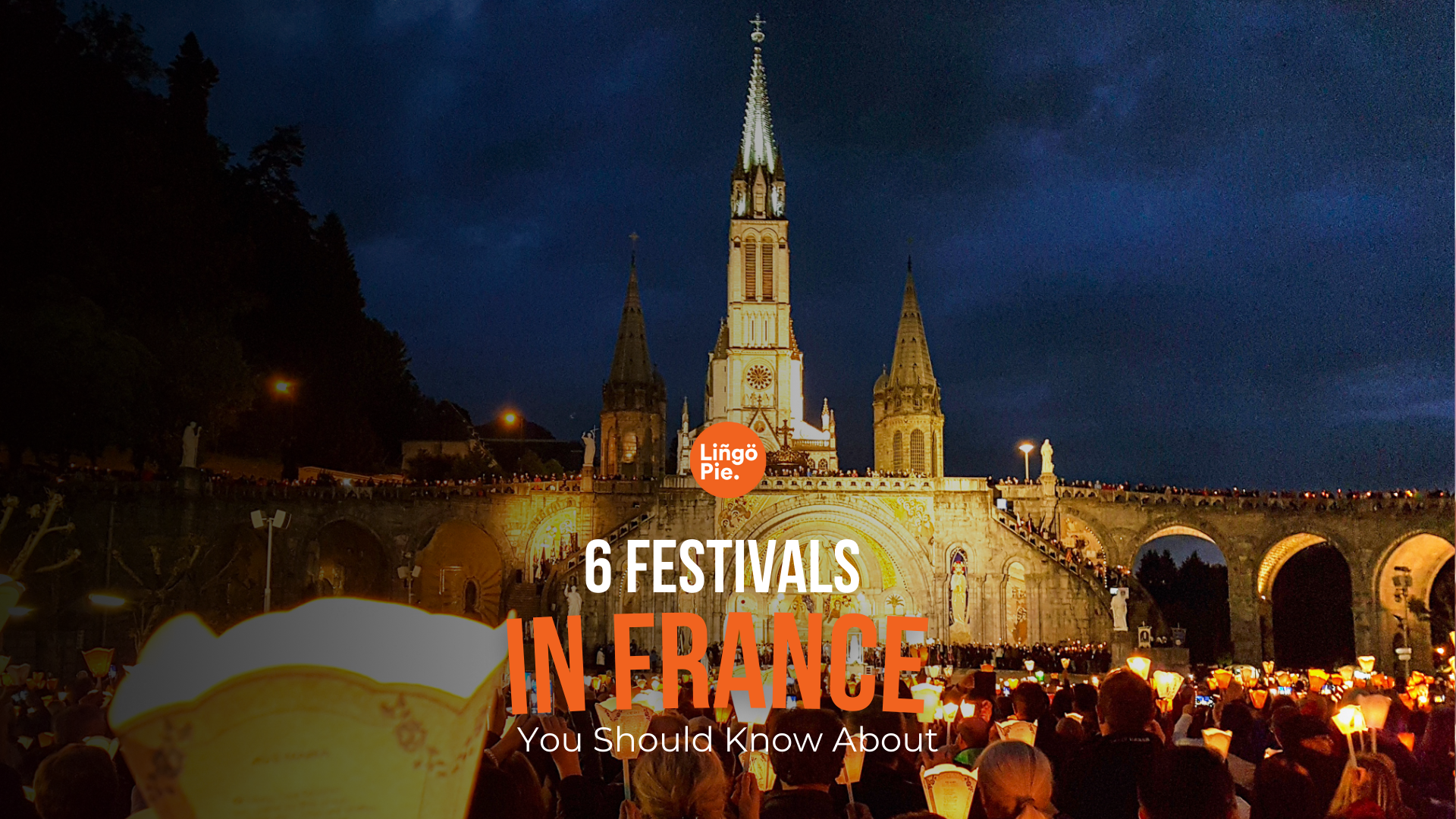You're here because you want to learn how to say hello in Brazilian Portuguese, right? Maybe you're planning a trip to Rio, making Brazilian friends, or just love collecting phrases in different languages. Whatever your reason, mastering Brazilian greetings will instantly make you sound more natural and help you connect with locals in a way that "textbook Portuguese" never could.
- 7 Brazilian Documentaries On Netflix You Need To See
- 6 Best Portuguese Documentaries To Learn Portuguese
- 6 Best Portuguese Comedy Movies Everyone Should Watch

What is "Hello" in Brazilian Portuguese?
The most common ways to say "hello" in Brazilian Portuguese are "Oi" (informal, like "hi") and "Olá" (slightly more formal, like "hello"). While both are understood everywhere, "Oi" is significantly more common in everyday Brazilian speech.
For formal situations or when greeting someone for the first time, Brazilians often use time-specific greetings like "Bom dia" (good morning), "Boa tarde" (good afternoon), or "Boa noite" (good evening).

Basic Everyday Greetings
Oi (Hi)
Pronunciation: "oy" (like "boy" without the "b")
The quintessential Brazilian "hi" - short, friendly, and universally understood. Unlike English where "hi" might sometimes feel too casual in certain settings, "oi" works nearly everywhere in Brazil from greeting friends to starting conversations with strangers in shops.
Olá (Hello)
Pronunciation: "oh-LAH" (stress on the second syllable)
Slightly more formal than "oi," consider this the Brazilian equivalent of "hello" versus "hi." Common in professional settings and written communication, though less frequently used in everyday speech than "oi." While both Portugal and Brazil use "olá," Brazilians typically prefer the more casual "oi" in most situations.
Tudo bem? (All good?/How are you?)
Pronunciation: "TOO-doo bayn"
The most essential Brazilian greeting after "oi." Literally meaning "all well?", this phrase functions exactly like "how are you?" and follows most initial greetings. The genius of "tudo bem?" is that it works as both question and answer - when someone asks you "tudo bem?", you can simply respond with "tudo bem" or just "tudo" to say you're fine.
Tudo bom? (All good?)
Pronunciation: "TOO-doo bong" (with a nasal sound at the end)
Virtually interchangeable with "tudo bem?", with a slightly different pronunciation. Some Brazilians prefer one over the other, but both are widely understood and serve the same purpose. The "bom" ends with a nasal sound similar to the English "ng" but not fully pronounced.

Time-Specific Greetings In Brazilian Portuguese
Brazilians are particularly strict about using the correct time-of-day greeting. These expressions change exactly at noon and sunset, and using the wrong greeting immediately signals you're unfamiliar with local customs.
Bom dia (Good morning)
Pronunciation: "bong JEE-ah" (in Brazil, "di" sounds like "ji")
Used from sunrise until noon, this all-purpose morning greeting works in every context from casual to formal. Brazilians are meticulous about using time-appropriate greetings, so incorporate "bom dia" into your morning routine to instantly sound more natural.
Boa tarde (Good afternoon)
Pronunciation: "BOH-ah TAR-jee"
The standard afternoon greeting, used from noon until sunset (roughly 6:00 PM). Brazilians switch from "bom dia" to "boa tarde" precisely at noon, and using the wrong time-based greeting can immediately mark you as an outsider.
Boa noite (Good evening/night)
Pronunciation: "BOH-ah NOY-chee"
Unlike English, which separates "good evening" (greeting) from "good night" (farewell), Portuguese uses "boa noite" for both purposes. You can say "boa noite" both when arriving at a dinner party and when leaving at the end of the night.
- How To Say Hello In Dutch In 10+ Easy Ways
- How To Say Hello In Russian: 7 Common Phrases
- 10+ Easy Ways To Say Hello In Chinese
Casual & Slang Greetings In Brazilian Portuguese
These informal expressions help you sound like a local rather than a textbook student. Brazilian slang greetings create an immediate social connection and are typically used among friends and in relaxed environments.
E aí? (What's up?)
Pronunciation: "ee-AH-ee" (emphasis on middle syllable)
The Brazilian equivalent of "what's up?" - extremely common among friends and in casual settings. What makes "e aí?" special is that it often doesn't require an actual response about how you're doing - Brazilians frequently respond with "e aí?" right back at you as simple acknowledgment.
Beleza? (All good?/Cool?)
Pronunciation: "bay-LAY-zah"
Literally meaning "beauty?", this slang greeting essentially asks "all good?" It's casual, widespread, and instantly makes you sound more Brazilian. You can respond to "beleza?" with "beleza!" or "tudo beleza" (everything's good).
Fala! (Speak!/Hey!)
Pronunciation: "FAH-lah"
Popular among younger Brazilians, especially in Rio de Janeiro, this literally means "speak!" but functions as a casual "hey!" or "what's up!" It's like an invitation for the other person to start talking and immediately signals familiarity.

Regional Greetings Across Brazil
Brazil's continental size means greeting customs vary significantly by region. Here are some of the commonly used expressions to say hello in Brazilian Portuguese.
Fala, mermão! (Hey, bro!) - Rio de Janeiro
Pronunciation: "FAH-lah, mer-MOWN"
This quintessentially Carioca (Rio) greeting combines "fala" with "mermão" (a contraction of "meu irmão" meaning "my brother"). Using this immediately identifies you with Rio's relaxed, friendly culture and is used primarily among friends, especially younger men.
E aí, mano? (What's up, dude?) - São Paulo
Pronunciation: "ee-AH-ee, MAH-no"
"Mano" (brother/dude) is distinctly Paulista slang from São Paulo, especially associated with the city's urban culture. Combining it with "e aí" creates a greeting that immediately connects you to São Paulo's youth culture and casual speech.
Oi, meu rei/minha rainha (Hi, my king/queen) - Bahia
Pronunciation: "oy, meh-OO hay/MEEN-ya hah-EEN-ya"
This warm greeting literally addresses people as royalty and is characteristic of Salvador and Bahia state. It reflects the region's Afro-Brazilian culture and tradition of warm, expressive speech, instantly connecting you with Bahia's welcoming atmosphere.
Uai, como vai? (Well, how are you?) - Minas Gerais
Pronunciation: "why, KOH-moh vye"
The expression "uai" is iconic to Minas Gerais state and functions similarly to Canadians saying "eh." It doesn't have a direct translation but adds a distinctive Mineiro flavor to greetings. Locals will be impressed if you incorporate this regional marker into your greetings.
More Ways to Ask "How Are You?"
Como vai? (How’s it going?)
Pronunciation: "KOH-moh vye"
A slightly more formal way to ask "how are you?" that works in most situations. It's more direct than "tudo bem?" but serves the same social function and can be used with anyone from friends to business contacts.
Como você está? (How are you?)
Pronunciation: "KOH-moh voh-SAY es-TAH"
The most direct translation of "how are you?" This is slightly more formal than "tudo bem?" but still widely used. It explicitly asks about the person’s state of being rather than just checking if everything is "good" or "well."

How To Respond To Greetings In Brazilian Portuguese
Knowing how to reply when someone greets you is just as important as knowing how to say hello. Brazilian Portuguese responses often mirror the greeting itself, particularly with question-greetings like "tudo bem?" Responses are typically brief, warm, and often return the same question back to the speaker.
| When someone says... | You can respond with... | Pronunciation | Meaning |
|---|---|---|---|
| "Oi" or "Olá" | "Oi" or "Olá" | "oy" / "oh-LAH" | Hi / Hello |
| "Tudo bem?" | "Tudo bem, e você?" | "TOO-doo bayn, ee voh-SAY" | All good, and you? |
| "Tudo bem?" | "Tudo" or "Tudo bem" | "TOO-doo" / "TOO-doo bayn" | All good |
| "Tudo bem?" | "Tudo ótimo!" | "TOO-doo OH-chee-moh" | Everything's great! |
| "Tudo bom?" | "Tudo bom, e você?" | "TOO-doo bong, ee voh-SAY" | All good, and you? |
| "Bom dia" | "Bom dia" | "bong JEE-ah" | Good morning |
| "Boa tarde" | "Boa tarde" | "BOH-ah TAR-jee" | Good afternoon |
| "Boa noite" | "Boa noite" | "BOH-ah NOY-chee" | Good evening/night |
| "Como vai?" | "Vou bem, obrigado/a" | "voh bayn, oh-bree-GAH-doo/dah" | I'm well, thank you |
| "Como vai?" | "Tudo bem, e você?" | "TOO-doo bayn, ee voh-SAY" | All good, and you? |
| "E aí?" | "E aí!" or "Beleza!" | "ee-AH-ee" / "bay-LAY-zah" | Hey! / All good! |
| "Beleza?" | "Beleza!" | "bay-LAY-zah" | All good! |
Continue Learning Brazilian Portuguese with Lingopie
Ready to take your Brazilian Portuguese beyond just greetings? Lingopie offers an engaging way to learn Portuguese through authentic Brazilian TV shows, movies, and content.
By watching native content with interactive subtitles, you’ll hear these greetings used naturally in context and pick up the proper pronunciation, rhythm, and cultural nuances that are difficult to learn from textbooks alone.
So what are you waiting for? Give Lingopie a try for FREE for 7 days by clicking below!








![5 Best Portuguese Translator Apps For Learners [REVIEWED]](/blog/content/images/size/w300/2026/01/Best-Portuguese-Translation-Apps.jpg)
